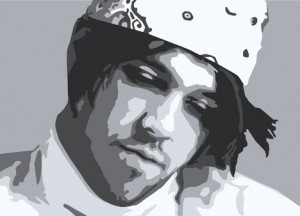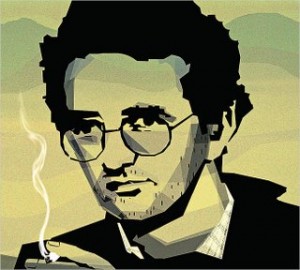Did you buy How They Were Found by Matt Bell? He wants to give you a free ebook. Details on his blog.
Using Biographies
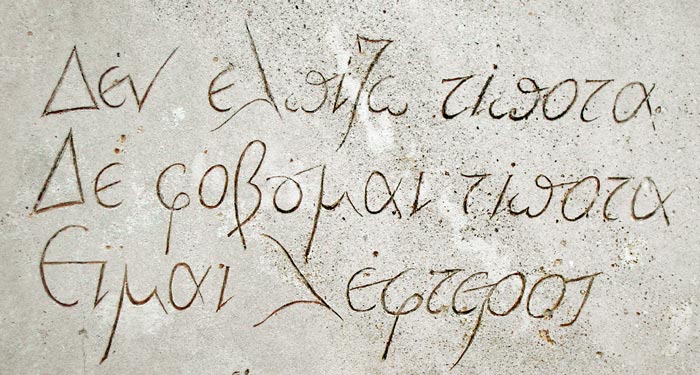
In Peter Bien’s introduction to his biography of Nikos Kazantzakis — Kazantzakis: Politics of the Spirit, Volume 1 — he quotes (apologies: this gets meta pretty fast) Stanley Hoffmann’s review of Annie Cohen-Solal’s Sartre: A Life, in which Hoffman says there are at least four ways to write biographies:
“especially those of writers as monstrously prolific as Sartre. One way is to try to deal both with the events in their private and public lives and with their writings. In the case of Sartre, this would require several volumes and an author who would feel competent to handle philosophy, epistemology, novels, plays, screenplays, politics, literary and art criticism and psychoanalysis . . .”
“Another possibility . . . is to try to find in the works the expression . . . of the writer’s personal traumas and conflicts.” A third possibility is to discuss the works at least briefly and to show “their connection with the author’s and the general public’s concerns of the moment, without providing an extensive analysis of the content or indulging in psychological reductionism.” Lastly, one can leave the work aside and concentrate on the life. “It is, of course, a debatable choice. What is Sartre without his books?” READ MORE >
The Poetical Taxon: A Questionnaire

My friend Joseph P. Wood wrote an interesting article over at Open Letters Monthly titled, “Taxonomy and Grace.” I think his basic thesis is encapsulated in these lines:
“While creative writing in American literature has always had camps, movements (and the prerequisite back-biting and bickering), I believe our current poetic climate is so conflicted and contentious that we have done away with talking about poems on their own organic terms. Let it be clear: I am not arguing for a return to New Criticism nor do I believe in the overtly easy-blame game of it’s the fault of those fucking universities. We live in the 21st century. What’s the point of asking to return to “the good old days” when those days would have excluded the likes of me — a working class, oddly educated, and peculiarly read writer with gaping holes in my canonical knowledge? I’m suggesting that while it is important to attend to our own academic reputations and political and aesthetic convictions, it is more important that we honor the imagination by not solely treating the poem against a singular interpretive mechanism.”
It might initially seem as though Joseph is arguing against the artist pigeonholing herself, right, by ascribing to one philosophical or theoretical stance, and this would be true, but I think he’s also genuinely concerned with the way we read and discuss poetry, the way we disseminate poetry. Has poetry become such an in-club that we can’t love a poem without ascribing it to a school or a movement? Do we have to know a shit-ton about Wittgenstein in order to speak intelligently about a poem? And as for the artist, is joining the club actually the job, or the business, of a poet (insert artist, writer, whatever besides critic)? Shouldn’t we simply write our way into the world? Are we in an age that forces us to straddle the fence between idea-schools and self-expression? What about the movements that aggregate what their members believe and create manifestos? I mean, where’s threshold beyond which the artist is in danger of losing her essential selfhood?
Read the article. Take issue. Praise its inherent belief in beauty and grace.
NYPL Young Lions Announcement
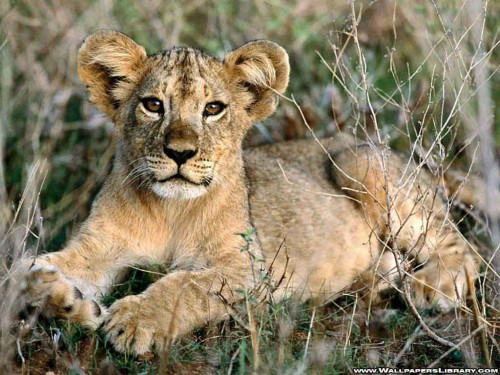
Every year, the New York Public Library & Ethan Hawke award $25k to a writer under 35 based on a book she published the previous year. Here’s the full press release. Here is this year’s list:
Citrus County by John Brandon (McSweeney’s)
Vida by Patricia Engel (Grove Press)
The Instructions by Adam Levin (McSweeney’s)
Death Is Not an Option by Suzanne Rivecca (W.W. Norton & Company)
Kapitoil by Teddy Wayne (Harper Perennial)
What do you think about this list? What have you read on this list? Who “deserves” it? Who’s missing? What was your favorite book published in 2010 written by a writer under 35?
TODAY THERE IS NO YEAR
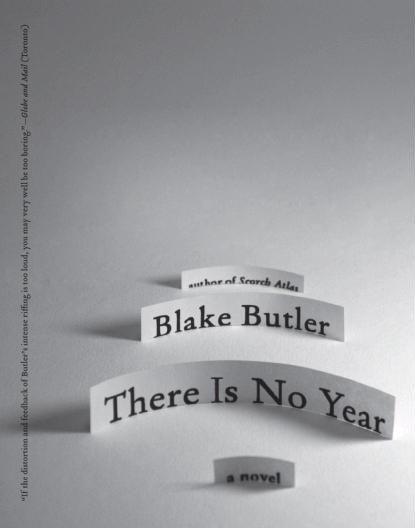
So happy for Blake and this book, as its presences will be felt. I love this book and I love Blake, so get your hands on this now.
Real Talk (The Lighter Side)

via Consumerist via Matt Bell’s FB wall
On Being Clever
 If you’re over eight years old, you don’t want anybody calling your art clever. Right? Clever is bad. Smart is good, maybe the best kind of smart is so smart it’s stupid. Dumbstruck. Two fish / this is water. Bill, a guy my father hated, out on the roof fixing our swamp cooler in the kind of beautiful July afternoon that gives California the best avocados. And Bill calls out: “Ain’t there just some days you’re glad to wake up?” And my father, talking to Bill through the slats of the swamp cooler, agrees. This is so stupid it’s smart. But it would’ve been clever if my father had said “Yeah, and there’s other days I’m just glad to fall asleep.” Too clever by half. Clever as measurement. Clever as cleaver. Perhaps from E.Anglian dialectal cliver, “expert at seizing,” Influenced, perhaps, by O.E. clifer “claw, hand.” Sammy Johnson said: “This is a low word, scarcely ever used but in burlesque or conversation; and applied to any thing a man likes, without a settled meaning.” Clever of me to say Sammy instead of Samuel, to make you think an extra nano-second who I mean, clever doesn’t want to give the other person credit (of course I knew you meant Samuel, asshole), clever means I’m hungry to catch the bus before you. Clever basically as cowardice and fear of intimacy. Right? READ MORE >
If you’re over eight years old, you don’t want anybody calling your art clever. Right? Clever is bad. Smart is good, maybe the best kind of smart is so smart it’s stupid. Dumbstruck. Two fish / this is water. Bill, a guy my father hated, out on the roof fixing our swamp cooler in the kind of beautiful July afternoon that gives California the best avocados. And Bill calls out: “Ain’t there just some days you’re glad to wake up?” And my father, talking to Bill through the slats of the swamp cooler, agrees. This is so stupid it’s smart. But it would’ve been clever if my father had said “Yeah, and there’s other days I’m just glad to fall asleep.” Too clever by half. Clever as measurement. Clever as cleaver. Perhaps from E.Anglian dialectal cliver, “expert at seizing,” Influenced, perhaps, by O.E. clifer “claw, hand.” Sammy Johnson said: “This is a low word, scarcely ever used but in burlesque or conversation; and applied to any thing a man likes, without a settled meaning.” Clever of me to say Sammy instead of Samuel, to make you think an extra nano-second who I mean, clever doesn’t want to give the other person credit (of course I knew you meant Samuel, asshole), clever means I’m hungry to catch the bus before you. Clever basically as cowardice and fear of intimacy. Right? READ MORE >
On Esoteric Interests & The Pain That Follows*
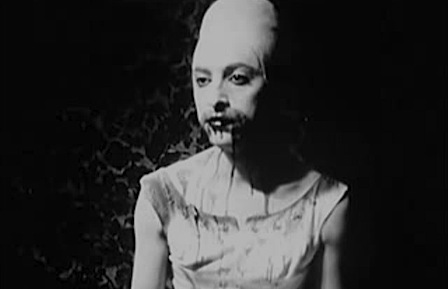
I’ve spent a good portion of my life listening to people tell me that my tastes are pretentious, or that I only like the “stuff” that I like because nobody else likes it, or the I intentionally look for the most obscure shit possible to obsess over, etc. etc. etc. This is bullshit, of course. And I mean, whatever, I don’t have anything to prove and that’s not exactly the point of this post.
The American ____?
People love to make equivalencies. For instance, Stuart McLean is the Canadian Garrison Keillor, or The Agenda is the Canadian Charlie Rose.
Obviously, equivalencies are problematic. The Canadian anything seems to be paler version of the American thing. (Call me nationalistic.) That is, they aren’t really equivalent. And yet, there seems to be some value in these equivalencies, right? (Maybe I’m wrong.)
That being said: Is DFW the American Roberto Bolano?
big-ass crunky green tomato reading notes
Done went 50+ poets in three days Alabama, something. Reading (s) questions/notes:
1. What to do with hands?
1. How long do you think about what you are going to wear?
2. Introductions longer than poems.
44. Risky: reading in southern accent because you are in The South.
11. Poetry readings in bars make the bartenders almost mime-like, hushed ordering, pouring of drinks, a reverent tinkling of glass, silent smiles. Quite lovely.
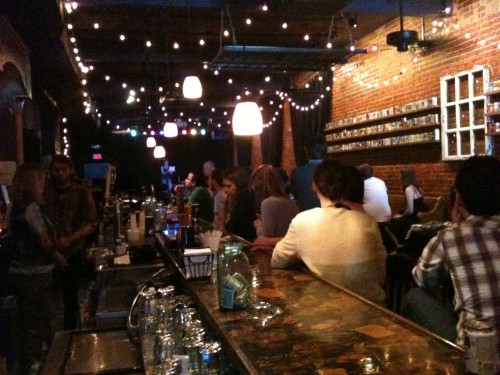 [Brandi Wells reading at The Green Bar. The can of beer in right corner low is Abe Smith‘s beer. It is a Good People IPA.]
[Brandi Wells reading at The Green Bar. The can of beer in right corner low is Abe Smith‘s beer. It is a Good People IPA.]
3. POETRY (profound, hushed voice…book in hand) versus “Uh, these are some poems.” (crinkly paper in hand)
3. Read first or read last or read middle or refuse to read?
3. Inside jokes to friends during reading to larger audience as never effective?
3. Flask/no flask?
3. Revelation: I am beginning to prefer undergraduate or other poets who have not read live very often.
3. I honestly thank/congrat one poet and he blows me off. He ‘cut’ me as Hemingway used to say. A poet. It costs him one book sale and some bad word of mouth later at a beer trough. So what? Respect or hater? A tad of both, I suppose. I still dig his poetry.
4. Do you prefer podium or some physical thing to psychologically shield you from audience?
6. Moon, muses, gossamer. Three words possibly enfeebled/faded, or possibly a challenge to prove otherwise?
4. Best intro line I heard since it could be innocuous or an absolute rip-shot across bow or simply authentic or really smart-ass: “Hey ya’ll, I’m not really a poet. I wish I was, I’d be real smart.”
3. Eagerness is interesting.

